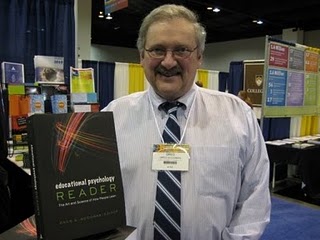We are holding our annual and special AERA TEP SIG elections, so if you are interested in providing leadership please consider running. Thank you to those who are running. Candidate profiles are below. Here are the slate of officers:
1. Program Chair / President / Past President
a. Duties include: setting the Annual meeting program, running the SIG, and picking a slate of officers
b. Term: 2011-2014
2. Treasurer / Secretary
a. Duties include: tracking finances, keeping minutes of meetings
b. Term: 2011-2013
3. Newsletter Editor
a. Duties include: assembling and distributing a newsletter several times per year
b. Term: 2011-2013
Candidate Profiles:
Program Chair: Stacy DeZutter
Affiliation: Millsaps College
I am an Assistant Professor of Education at Millsaps College. I teach a diverse set of educational psychology-based courses, including courses in human development, creativity, and methods of instruction. My research builds on insights from sociocultural theory to examine two separate (but sometimes related) topics: group creativity and teacher cognition. I hold a PhD in the Learning Sciences from Washington University in St. Louis. I have been active in the leadership of AERA since 2003, having served in a number of roles including Chair of the Graduate student Council (a role which also included serving on AERA's Association Council) and Secretary/Treasurer for the TEP SIG. The TEP SIG has been a valuable resource for me, and I am eager to use my experience in AERA leadership to support its efforts. In particular, I'd like to forge stronger connections between our SIG and the graduate student membership, as a means to bring new members to our group and to foster mentoring relationships between experienced ed psych professors and those newer to the endeavor. I am also proud of how our various web-based outlets (TEP wiki, blog, newsletter, and online journal) have flourished in recent years, and I would like to build on this success.
Treasurer / Secretary: Cynthia Bolton-Gary
Affiliation: University of South Carolina, Beaufort
Doctor of Philosophy in Educational Psychology from the University of North Carolina Chapel Hill, 1994. Currently, Associate Professor at the University of South Carolina Beaufort, Assessment and Accreditation Coordinator (2009-present), Chair of the Department (2009-2010), Director-Center of Excellence in Collaborative Learning (2008-present). Previous faculty appointments at the University of South Carolina Aiken, and Aurora University. Fellow at the North Carolina Center for the Advancement of Teaching (2006-2008). Research interests: assessment, teacher preparation, classroom management, children’s literature.
Newsletter Editor: M. Cecil Smith
Affiliation: Northern Illinois University
M Cecil Smith is a professor of educational psychology at Northern Illinois University where he has taught educational psychology, research methods, and human development courses since 1988. He has been a member of AERA since 1984, and has served as a proposal reviewer for various Divisions and SIG for many years. He was co-chair of Division C (1999) and is currently webmaster and newsletter editor for the Adult Literacy and Adult Education SIG.


